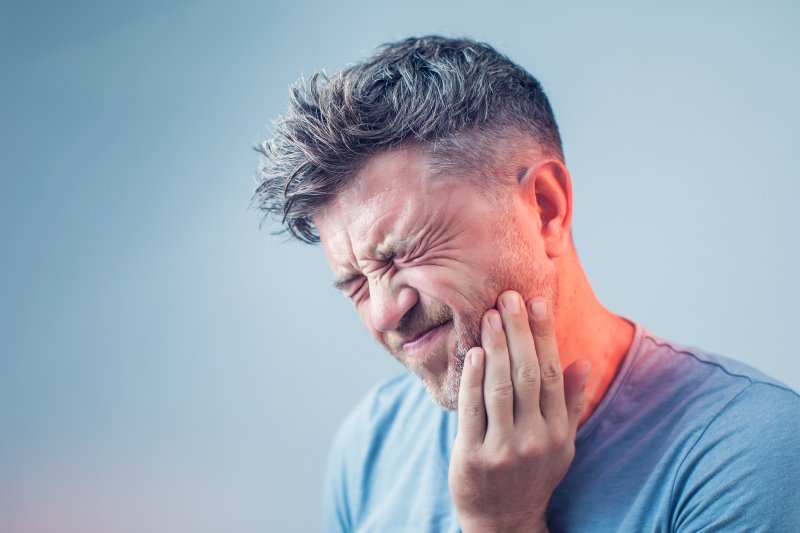An Unwelcome Chip Off the Old Block: What to Do if You Chip a Tooth
December 13, 2023

Maybe you play contact sports, chew too aggressively, or grind your teeth at night. In any case, realizing that you have chipped a tooth is an unpleasant discovery for anybody. While chips can vary in their severity, it’s important to have them treated by a dental professional in any case. Here’s what to do after you chip a tooth as well as how to know whether you should call an emergency dentist or if you can wait until your next scheduled dental appointment.
What Kind of Problems Can a Chipped Tooth Cause?
While wear and tear on your teeth is to be expected after decades of use, a chipped tooth is of particular concern. While they don’t always constitute dental emergencies, it’s important to have them inspected and treated by a dental professional to protect your overall health. While a minor chip may just be an unsightly blemish on your smile, it still represents a weakened point on your tooth, and severe chips can lead to issues like:
- Damaged enamel
- Sensitive teeth
- Toothaches
- Infections
- Loss of the tooth
What Should I Do if I Chip a Tooth?
There are a few steps you should take after you notice a chip in your smile. If you do not experience any pain, bleeding, or swelling, addressing the issue can probably wait until your next dental appointment. If the chip is severe, consider the following measures:
- Give your mouth a rinse with warm water: This can help clear irritants and bacteria away from the teeth while also cleaning up any blood and soothing the pain. Your tooth may be sensitive to temperature changes after being chipped, so take care to use warm water rather than hot or cold.
- Treat the bleeding: Use clean gauze to apply gentle pressure to the afflicted tooth. Rinse or replace the gauze when necessary.
- Treat the swelling: Hold an ice pack or cold compress over the lip or cheek covering the chipped tooth. This will help reduce swelling and discomfort.
- Manage the pain: An over-the-counter pain management medication can reduce swelling, but take care to avoid aspirin or other medications that can interfere with your blood forming a clot.
- Keep the tooth safe: A chip can make a tooth vulnerable to further injury. If available, use dental cement to keep your tooth safe until your next dentist’s appointment.
- Protect your tongue and cheeks: Chipped teeth can have sharp edges. Apply dental wax if you experience any cuts to your tongue or cheeks.
- Bring the chip to the dentist’s office if you can: In some cases, a chip can be reattached to the tooth. Keep it in a container with milk or saliva to prevent it from drying out. Otherwise, other treatments are available.
Chipping a tooth can be an incredibly frustrating experience. By knowing what to do when it happens, you can get the care you need when you need it and achieve the best possible outcome from the situation.
About the Author
Dr. Ukti Phadnis earned her dental degree at the University of Connecticut School of Dental Medicine and has taken many continuing education courses to stay on top of the latest developments in the field. She is a member of the American Dental Association, the Connecticut State Dental Association, and the Hartford Dental Society. Her office in West Hartford, CT offers general, cosmetic, restorative, and emergency dentistry. If you are seeking care for a chipped tooth, contact the office online or dial (860) 236-4249.

